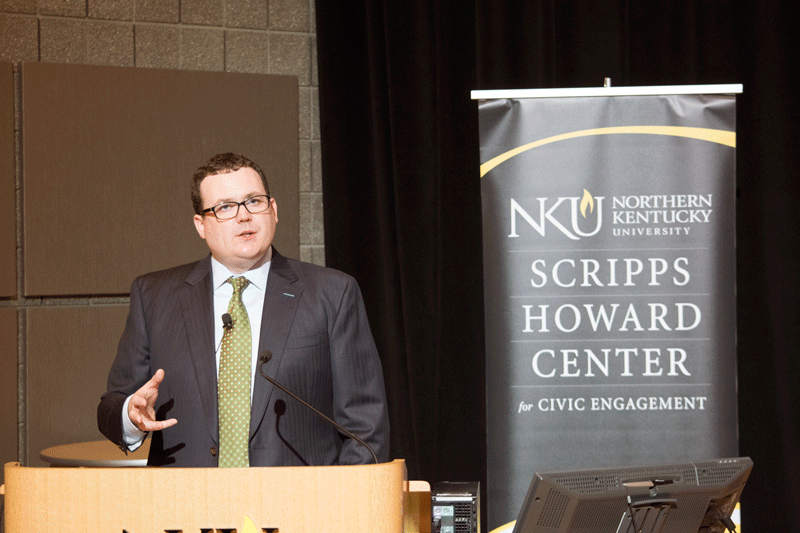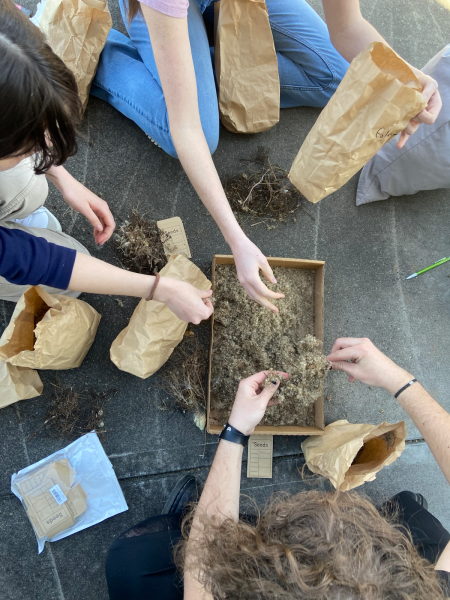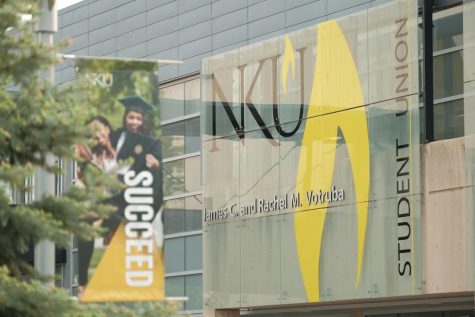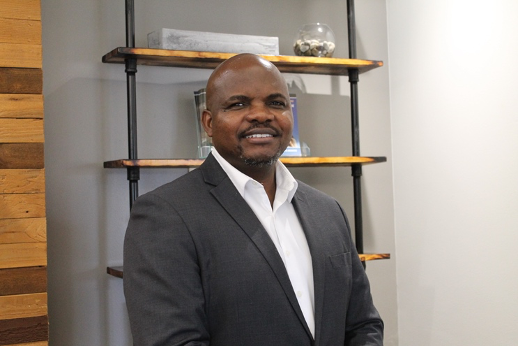AP editor immersed in unbelievable presidential election cycle
David Scott, national political editor for the Associated Press, spoke Wednesday in the Digitorium as part of the Scripps Center for Howard Center for Civic Engagement Six@Six series.
Still 13 months away from the presidential election, the race to the White House has been more unbelievable than one could imagine, according to the Associated Press’ national political editor.
David Scott, who has held that position since April 29, 2014 spoke to an attentive audience Wednesday in the Griffin Hall Digitorium at Northern Kentucky University.
Scott’s comments are especially noteworthy considering he spent five years in Chicago, a city with a history of interesting politics.
“It’s been nothing like I expected,” Scott said. “I consider Cook County home, right? You know, ‘Vote early, vote often.’ But this so far has even been more than what I thought.”
The speech was the season opener for the Scripps Howard Center for Civic Engagement and its Six@Six series.
Despite the fact a couple of candidates have left the race, Scott said there are still a lot of people running for president.
“Technically there are several hundred Republicans running for president,” Scott said. “People who have filled out paperwork with the Federal Election Commission.”
Out of the hundreds who are officially running, the Associated Press identified 17 as major candidates, according to Scott. That’s not exactly how he expected it to go.
“I very much thought it was setting up for an election between Hillary (Clinton) and Jeb (Bush), where we were having very long, calm, deliberative policy discussion in the country between people who have two very different views on the way the country should go,” Scott said. “It has not turned out to be that way.”
Scott discussed some of the issues facing all of the major candidates.
He said Bush’s campaign is spending more money received from a super political action committee (super PAC) than from its own fundraising. If it continues, Scott said, “An outside group, affiliated with a candidate, will spend more money to elect that candidate than the candidate will himself. It would be the first time that’s ever happened.”
Bernie Sanders, “is not even a Democrat,” Scott said. “But he has unquestionably generated more excitement than any candidate in this race … except maybe ‘this guy.’”
‘This guy’ was Donald Trump. Trump’s campaign opening speech was such that Scott said the Associated Press did not bother to verify the claims Trump made in it.
“He said so many things in that hour-long speech that were either unquestionably false or deliberately misleading that we decided not to write a fact-check about it,” Scott said. “Because it was obvious to us to our newsroom in Washington that he wasn’t to be taken seriously.”
According to Scott, any negative reporting about Trump’s campaign is dismissed by his supporters.
“In a very real way, I’m the worst person to call out Trump for saying something that isn’t true,” Scott said. “His supporters will dismiss it because I’m a journalist. I’m part of the establishment. He will last. He will stick around. His support – how deep it is, unknown – is very, very real.”
On Clinton, Scott said, “Did anyone here think that email was going to be the defining issue on the Democratic side of the race at this point of the campaign? Yeah, me either. Didn’t see that coming.”
Scott discussed the difficult math facing Republicans in the 2016 Electoral College. He predicted Hillary Clinton would likely win the White House, then said that result was anything but certain.
“Folks, it’s not close,” Scott said. “Hillary has all the advantages in the world. But before any of the Democrats in the room get too excited … one of the data points that a lot of models interject into their forecast is the prediction of experts, pundits, people like me.
“Historically the only thing worse than preference polls when it comes to predicting an outcome of an election is what experts say. Don’t watch television in the afternoon. It will kill your brain.”
In the end, as always, the American voters will make that decision.
“The great thing about covering politics in America is that it’s not us – it’s not the polls, it’s not the money,” Scott said. “It’s the voters who still ultimately decide. That’s the way our system works.”
Scott recalled election night in 2008. Still an editor in North Carolina, he still remembers the night Barack Obama was elected president.
“I stood up and reminded my staff, ‘Hey, the presidential race is done, but there are a whole lot of state races left to call,’” Scott said. “‘Our AP customers are expecting great coverage of House and Senate so let’s not get too hung up on the Presidential race. I know history is being made in Grant Park tonight, but we’ve got to keep our eye on the ball.’”
A member of Scott’s staff then caught his attention.
“Then I looked over and saw a member of my team, and he was in tears,” Scott said. “Skip Foreman is a fantastic radio reporter and radio editor in the Raleigh bureau, and he is also a black man who grew up in the south and lived his entire life in the south. And that moment was one that he had never expected, and he never allowed himself to imagine.”
When Sally Buzbee, Washington bureau chief contacted Scott in 2014 to take over as national political editor, he thought of Foreman.
“Not many things could have pulled me away from Chicago,” Scott said. “But that was one – the idea that you get to direct AP’s coverage of the presidential race.”
Wednesday’s speech was the second time the AP political editor was a keynote speaker in the series, according to Collette Thompson, coordinator of the Scripps Howard Center for Civic Engagement.
Four years ago the previous editor, Liz Sidoti, participated at the METS Center in Erlanger, Ky.
“The AP has been an incredible partner with us throughout this entire series,” Thompson said. “Every year they provide a top-notch national editor to come in and do their thing.”
Mark Neikirk, director of the Scripps Howard Center for Civic Engagement, said the ongoing relationship with the AP started by simply asking if they would come to NKU.
“It’s a relationship that we built over the past six years,” Neikirk said. “Sometimes, with a lot of things, you just ask. If you don’t ask somebody to do something, it doesn’t happen. AP said yes, and I think it’s been proud to showcase its journalists.”
Neikirk believes the event has given the Associated Press a chance to get out and be seen by its readers.
“They’re human beings, thinking through what they cover,” Neikirk said. “It’s a thoughtful, serious process. The media isn’t the devil – they’re real human beings trying to think about how to serve the customer which is the reader or the viewer.”
Adam Yeomans, chief of the Tennessee, Kentucky and Mississippi bureau, said the AP likes to have opportunities to speak to the public.
“Our folks do a lot of public speaking at various events,” Yeomans said. “We’re doing presentations all over the world. For us, it’s a great opportunity for our guys to come out and talk about what we do.”












